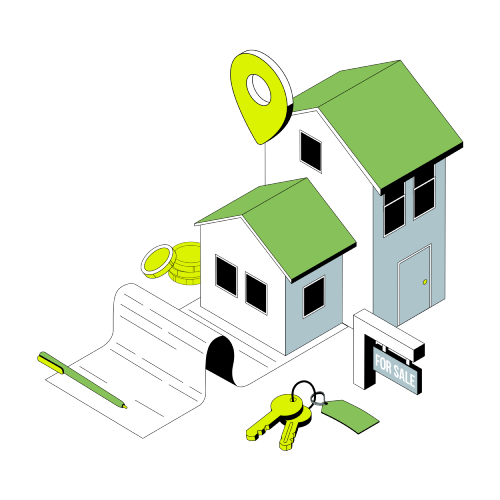Buying a home for the first time can be both an exhilarating and daunting experience, especially in Alberta’s ever-evolving real estate market. As an Alberta first time home buyer, I’ve found that navigating the variety of incentive programs available can significantly impact the affordability and feasibility of making a purchase. Understanding these programs is key to taking full advantage of the financial support that can make homeownership a reality, so speaking with pros like Best Edmonton Realtor can really clear up questions and misconceptions.
In Alberta, initiatives such as the First Place Program in Edmonton have been particularly helpful for individuals like me who are entering the market. This program offers a five-year deferral on land costs for selected properties, easing the initial financial burden. Moreover, the ability to withdraw up to $35,000 from an RRSP without immediate taxation under the Home Buyers’ Plan is a significant benefit, aiding in accumulating the necessary down payment.
The introduction of the First Home Savings Account (FHSA) in 2023 has added another layer of support, allowing savings for a first home to grow tax-free, enhancing my ability to save more efficiently. Coupled with the First-Time Home Buyers Tax Credit, which offers a tax credit up to $10,000 for the purchase of a qualifying home, these measures have made considering homeownership in Alberta a more approachable goal for myself and many others in my position.
Eligibility Criteria and First Steps

As a first-time home buyer in Alberta, understanding the basics of mortgages, ascertaining eligibility, and knowing about the First Home Savings Account are pivotal first steps towards homeownership.
Understanding Mortgage Basics
Mortgage:
A mortgage is essentially a loan that helps me purchase a home. The property is collateral for the loan, which I will repay with interest over a set period.
Mortgage Rates:
Mortgage rates are the interest rates attached to my mortgage. They can be fixed or variable. Fixed rates remain constant throughout the term, while variable rates can fluctuate with market conditions. Shopping around for the best rate is crucial, as even a small difference can impact my monthly payments significantly.
Determining Your Eligibility
First-Time Home Buyer:
To be recognized as a first-time home buyer in Canada, I must not have owned a home in the last four years.
Mortgage Pre-approval:
Being pre-approved from a lender is a strong first step. This process involves a lender examining my financial situation to determine the amount I can borrow. This pre-approval helps me understand what I can afford and shows sellers that I am a serious and approved buyer.
First Home Savings Account
First Home Savings Account (FHSA):
The FHSA is a tax-advantaged savings account that assists first-time home buyers like myself in saving for a down payment. I can contribute up to a certain limit each year with the added benefit of my contributions being tax-deductible, and I can withdraw the funds tax-free when it’s time to purchase my first home.
Financial Assistance and Programs for Alberta First Time Home Buyers

As a first-time home buyer in Alberta, I’m aware of various financial supports and programs designed to make the transition to homeownership more attainable. These supports come in the form of government-sponsored incentives, provincial support options, and guidance for managing finances and additional costs associated with purchasing a home.
Government-Sponsored Incentives
The Government of Canada offers several incentives for first-time home buyers like myself. One notable program is the First-Time Home Buyer Incentive, which eases monthly mortgage costs without increasing down payments through a shared equity mortgage with the government. Additionally, the Home Buyers’ Plan (HBP) allows me to withdraw up to $35,000 from my Registered Retirement Savings Plan (RRSP) to put towards the purchase of a home, without immediate tax penalties.
Provincial Support in Alberta
In Alberta, first-time home buyers can access the First Place Program in cities like Edmonton, which offers a five-year deferral on land costs for select properties. Additionally, Attainable Homes Calgary is an initiative offering financial assistance and education to make homeownership more accessible for Calgary residents.
Managing Finances and Additional Costs
Understanding the full financial picture is crucial when purchasing a first home. The GST/HST New Housing Rebate provides a rebate on the federal sales tax paid during the purchase or renovation of my new home, provided I meet certain criteria. It’s also important for me to account for additional costs such as closing fees and moving expenses in my budget planning.
My knowledge of these financial programs and careful planning are essential steps towards responsible homeownership in Alberta.
The Home Buying Journey

In purchasing my first home, I navigated through a structured process in Alberta’s varied housing market, focusing my search on towns like Calgary and Edmonton, known for their contrasting inventory and price trends.
Searching for Your Home
Finding the right home involved a systematic approach where I kept a keen eye on the cities’ inventory levels and market prices. In Calgary, known for its vibrant urban atmosphere, I saw a constant fluctuation in the housing market trends, with price growth often aligning with economic indicators. I employed a simple step-by-step method:
- Determine Budget: I assessed my finances to set a firm budget, accounting for potential price growth.
- Choose Location: I decided between Calgary’s bustling city vibe and Edmonton’s community-focused areas depending on my lifestyle preferences.
- Type of Home: I considered different types of properties, like single-detached homes which are prevalent in Edmonton.
- Features: I made a list of essential features, like the number of bedrooms and proximity to work.
- View Listings: I kept an eye on listings, especially during periods of high inventory, to gauge the average prices.
- Home Appraisals: Considering properties in both cities, I learned that a home appraisal is critical, as it impacted financing and ensured a fair purchase price.
Making an Offer and Closing the Deal
Moving forward with an offer, I took a strategic approach:
- Offer Submission: After identifying the property, I submitted my offer with a clear understanding of current home prices in Calgary and Edmonton.
- Negotiation: I prepared myself for potential negotiations, factoring in the home’s appraisal and the prevailing housing market conditions.
- Home Inspection: A vital step, the inspection, safeguarded against unforeseen structural issues.
- Closing the Deal: In closing, I confirmed all legal documents, ensuring final prices aligned with the appraised values and my budget, before the handover.
Through these steps, my first-time home-buying process in Alberta was methodical, grounded in current market data, and tailored to my personal and financial circumstances.
After Purchase Considerations

When I’ve successfully purchased a home, it’s crucial to understand that this is just the beginning. I have to familiarise myself with the responsibilities that come with home ownership and make long-term financial plans to maintain and potentially enhance my investment.
Understanding Ownership Responsibilities
Becoming a homeowner involves a range of responsibilities beyond the initial purchase. Firstly, I must take care of regular maintenance to prevent any deterioration that can affect the home’s value. This includes everything from annual roof inspections to keeping up with daily tasks like landscaping.
I am also responsible for paying property taxes and abide by any local municipality rules and regulations. Staying on top of these responsibilities is essential, not only for living comfortably but also for maintaining my home’s equity and personal net worth.
Long-Term Financial Planning
After acquiring a home, I should consider my long-term financial landscape. The appreciation of my property over time can increase my net worth, but this is often tied to fluctuating market conditions and household income stability.
Here are a few considerations for long-term financial planning:
- Interest Rates: Interest rates can affect my monthly mortgage payments. I should always keep an eye on this, especially if I have or am considering a variable-rate mortgage.
- Incentives: Taking advantage of home buying incentives can save me a significant amount of money. For instance, in Alberta, as a first-time home buyer, I could be eligible for tax credits or land cost deferrals which can aid in reducing initial financial burdens.
- Second Mortgage: If needed, I must understand the implications of taking on a second mortgage, carefully considering the rules that govern it and its effect on my finances.
In summary, purchasing a home greatly impacts my finances, and I need to uphold my end of ownership to protect and potentially grow my investment.







